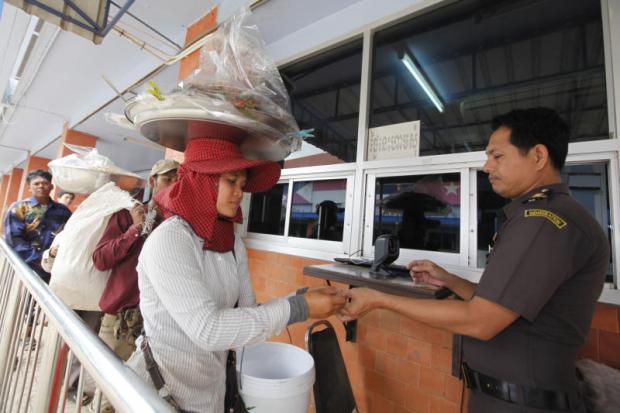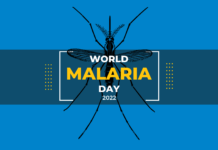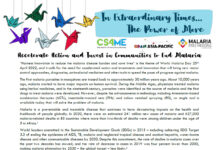
This year’s World Malaria Day theme, “Zero Malaria Starts With Me” re-energises the fight to eliminate malaria which, despite being a disease that is preventable and treatable, still kills over half a million people every year.
Thailand, as the chair of Asean, is also gearing up to observe Malaria Week in Bangkok this week to work together with different countries and partners towards the elimination of malaria from the country by 2024; and from Asia and the Pacific by 2030.
Thai Public Health Minister Piyasakol Sakolsatayadorn has reaffirmed that the country is committed to the regional effort and is on track to reach the national target. Last year, Thailand declared 35 provinces (out of a total of 76) malaria-free. But malaria is concentrating towards Thai borders, making the fight to end the disease even more complex.
“As we slowly move towards elimination of malaria in Thailand, the cases continue to shift closer to borders and more hard-to-reach mobile migrant populations,” says Alistair Shaw of the Raks Thai Foundation.
One of the major threats looming over Thai success in malaria control is drug resistance. Historically, the Greater Mekong Subregion comprising Thailand, Myanmar, Cambodia, Vietnam and Laos has been an epicentre of antimalarial drug resistance. Forty to forty-five years ago, resistance to chloroquine, a medication used to prevent and to treat malaria, started in this region and spread globally. Now, fears about the resurgence of malaria are due to artemisinin resistance.
“This area is the epicentre of drug-resistant malaria. Drug-resistant malaria can become a global health threat if we cannot manage and eliminate drug-resistant malaria in Thailand and the Greater Mekong Subregion,” said Dr Piyasakol.
But the scientific research about whether the spread of drug resistance from this region to the rest of the world is a real risk or not is inconclusive.
“It is mostly the asymptomatic patients that carry gametocytes (plasmodium falciparum), cells in malarial parasites that specialise in the transition between the human and the mosquito host. In Thailand, less than 5% of patients have gametocytes that can transmit to the next mosquito cycle. There is no strong evidence so far whether a person who has drug-resistant malaria can transmit it to the mosquito and the mosquito carrying that phenotype could transmit it to another person,” says Jetsumon Sattabongkot Prachumsri, Director of Mahidol Vivax Research Unit (MVRU), Faculty of Tropical Medicine, Mahidol University.
Global health expert Tim France agrees. “At present here is a lot that we do not understand about malarial drug resistance and we do know we are in a very active learning period. But at the end of the day, whether drug resistance is spreading or occurring de novo, the conclusions and essential actions remain the same,” he said.
Thailand’s National Malaria Elimination Strategy was endorsed in 2016 with the elimination goal of 2024. Since then, malaria cases have continued to decline: from 2012 to 2017, the number of malaria cases in the country fell by 67%, with a 39% drop between 2016 and 2017. In 2017-2018, malaria cases further dropped by 51% (from 14,684 to 7,153).
One of the primary challenges, Dr Piyasakol said, is combating drug-resistant malaria with a limited pipeline of new drugs. Chief Scientific Officer of the World Health Organisation (WHO) Soumya Swaminathan agrees: “While there are tools available to deal with malaria, but modelling studies show that to achieve elimination we will need new and better tools by way of better diagnostics, better treatment strategies and also an effective vaccine.”
To fortify Thailand’s response to eliminate malaria from within its borders and from the Greater Mekong Subregion, the Global Fund pumped in the largest multi-country regional grant of US$243 million (about 7.8 billion baht), for the period of 2018-2020, to accelerate the elimination of drug-resistant malaria.
“Our role has been to create malaria resilient communities who can identify themselves when they suspect malaria cases and can respond to it through all the different mechanisms that have been set up and the links that have been made to health services,” said Alistair Shaw of Raks Thai Foundation, which is one of the recipients of the Global Fund grant.
“We have also made strong relationships with the local government officers to conduct mobile testing and prevention education in vulnerable populations which include mobile migrant populations from Cambodia, Vietnam, Laos and Myanmar, as well as mobile Thai ethnic minority communities traveling through forests or across borders for various activities,” added Mr Shaw.
“Our work is to extend the reach of the government services to communities that are located very far from local government health services and do not feel comfortable, or are unable, to access a conventional health service,” Mr Shaw said.
Malaria testing and treatment is free for all people in Thailand including those who are not Thai nationals, and migrant workers that come to Thailand are normally covered by the country’s disease control programme and they get access to malaria clinics.
But Shreehari Acharya, Project Manager of Regional Malaria CSO Platform, says that although services may be free, not all mobile migrant populations are able to access them. He added that in some border areas, there is no internet access, no mobile network, and/or no public transportation.
“Another barrier to healthcare is faced by mobile migrant populations who have a language barrier and/or do not have legal documents. They are still not comfortable with going alone to a health facility. They need someone whom they can trust, and who speaks their language to accompany them. Government health facilities are, at times, understaffed. Hence government staff may not be available to accompany civil society to go to the forests or farms and provide health services to high risk populations,” said Mr Acharya.
However, as Thailand moves towards malaria elimination, Ms Jetsumon of Mahidol Vivax Research Unit cautions that as malaria cases decline, people’s awareness also declines, especially in areas that were malaria endemic in the past.
“For example, Kanchanaburi province, used to be malaria endemic with malaria in every district, but now it has very few, less than 30-40 cases, and that is not in every district. Youngsters born in a district that has no malaria cases do not know about malaria. But the older people might still carry the malaria parasite asymptomatically inside them and be the reservoir of malaria transmission. We cannot let down our guards, otherwise re-emergence could happen,” said Ms Jetsumon.
Shobha Shukla and Bobby Ramakant are the editors of CNS (Citizen News Service).
Source : https://bangkokpost.com/opinion/opinion/1666208/thailands-fight-to-eliminate-malaria-by-2024







